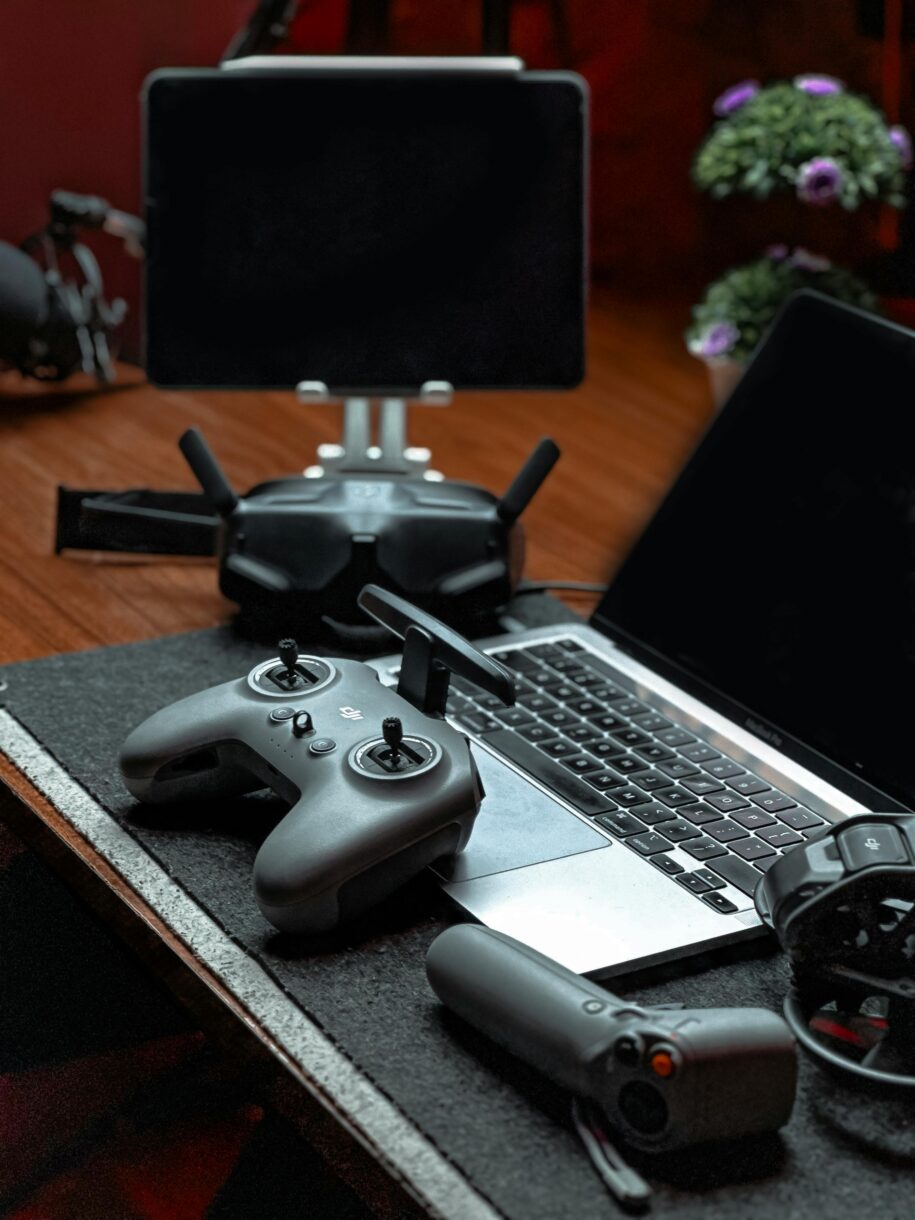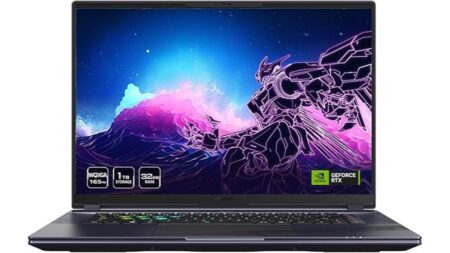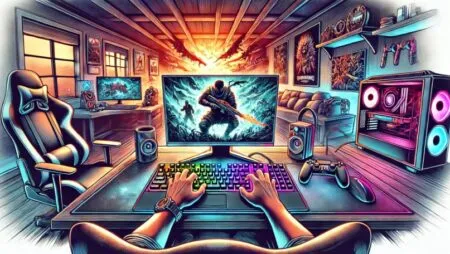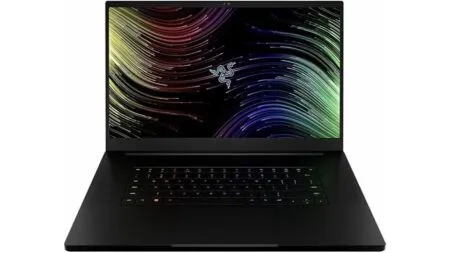Hey, gamers! If you’ve ever owned a gaming laptop, you might be familiar with this scenario: everything is going great, your laptop is running games on ultra settings, and you’re enjoying the smooth FPS. But after a year or two, it all starts to crumble. The fans sound like a jet engine, the battery barely lasts an hour, and you wonder, “Why do gaming laptops seem to die so fast?”
If you’re here trying to figure out why your precious gaming laptop isn’t holding up, you’ve come to the right place. Let’s dive into why this is a common issue and what you can do to make your laptop last a bit longer.
Quick Overview: Factors That Affect Gaming Laptop Lifespan
| Factor | Description |
|---|---|
| Heat | Gaming laptops generate a lot of heat, which impacts hardware over time. |
| Battery Usage | Gaming draws a lot of power, which wears down the battery faster. |
| Compact Design | Limited space makes cooling difficult, leading to thermal throttling. |
| Component Stress | Components like GPU and CPU are pushed to their limits during gaming. |
| Maintenance | Poor upkeep like infrequent cleaning and bad thermal paste replacement contributes to early wear. |
Now, let’s get into the details and talk about why your beloved gaming machine doesn’t seem to last as long as you would hope.
1. Heat: The Silent Laptop Killer
First things first—heat. Gaming laptops are notorious for getting hot, and there’s a reason for that. Unlike desktops, where you have ample room for air to flow and multiple fans to cool everything down, a gaming laptop is trying to squeeze all that powerful hardware into a tiny shell. This compact design doesn’t give much space for airflow, which means your GPU and CPU are running hotter, especially when you’re gaming for hours on end.
Over time, this constant heat wears down components. When a gaming laptop gets too hot, it can lead to something called thermal throttling. Thermal throttling happens when the laptop intentionally slows itself down to avoid overheating. This protects the components, but it also affects performance, and the long-term effects mean your laptop is aging faster than it should.
2. Batteries Don’t Like Long Gaming Sessions
Gaming laptops are designed to be portable, but gaming is not exactly battery-friendly. Playing demanding games drains the battery quickly, and constantly going from full to empty is tough on a battery’s lifespan. Most of us also plug in our laptops while gaming to get the best performance, but here’s the problem: keeping the laptop constantly plugged in can lead to overcharging, which slowly degrades battery health over time.
Think about it: when you’re gaming, you want the best power your laptop can give, and being plugged in is the best way to ensure that. But, by doing this regularly, the battery loses its capacity to hold a charge, which is why after a year, your laptop’s battery barely lasts an hour or two.
3. Compact Design = Poor Cooling
Gaming laptops are powerful, but the compact design that makes them portable also works against them. All the heat generated by the CPU and GPU has nowhere to go, leading to high internal temperatures. Many gaming laptops try to combat this with high-powered fans, but these fans can only do so much with the limited space available.
This tight space means the cooling systems are always playing catch-up, especially if the laptop is not cleaned regularly. Dust buildup can clog fans and vents, making heat dissipation even worse. When cooling systems can’t keep up, your components are constantly being exposed to higher-than-ideal temperatures, which leads to premature aging of your hardware.
4. Stress on Components
Gaming isn’t exactly a light task for your laptop. When you fire up a game, the GPU and CPU are pushed to their limits. Think of your gaming laptop like a car engine. If you constantly push the car to its top speed, it’s going to wear down much faster than if you drive it at a moderate pace.
The components in your gaming laptop are designed for performance, but running them at high temperatures and loads continuously leads to wear and tear. The GPU, in particular, tends to degrade over time as it’s under constant stress when running graphically intensive games. Eventually, this wear leads to slower performance, glitches, and crashes.
5. Poor Maintenance and Upkeep
Another reason gaming laptops don’t last very long is that many users don’t maintain them properly. When was the last time you cleaned out the dust from your laptop or replaced the thermal paste? Regular cleaning and changing out the thermal paste every year can help a lot with keeping temperatures low, but it’s something many gamers overlook.
Thermal paste is a compound between your CPU/GPU and the heatsink that helps transfer heat. Over time, it can dry out and become less effective, meaning your components will run hotter. If you’re not cleaning and reapplying thermal paste, you’re basically letting your laptop slowly cook itself.
6. The Gaming Laptop Vs. Desktop Dilemma
A common frustration among gamers is that desktops just seem to last longer. And there’s a good reason for that. Desktops have bigger cases, better airflow, and components that aren’t crammed together. With desktops, you can also easily swap out parts, like upgrading the GPU or replacing a cooling system, which helps extend their lifespan.
Gaming laptops, on the other hand, have limited upgrade paths. In most cases, you can upgrade the RAM or storage, but replacing a GPU or CPU is almost impossible. This means that when your components start to age or become outdated, your only real option is to buy a new laptop.
7. Software Updates and Increased Demands
Games and software get more demanding every year. When you first buy a gaming laptop, it’s designed to handle the current generation of games. But as newer games come out, they require more power, better graphics, and faster processing speeds. Your laptop, which might have been a beast when you bought it, suddenly starts to struggle.
Software updates can also be a problem. GPU drivers, Windows updates, and game patches can all add strain to an aging laptop. What once ran smoothly now feels sluggish as the hardware simply can’t keep up with the ever-increasing demands of new software.
How Can You Make Your Gaming Laptop Last Longer?
If all of this sounds a bit discouraging, don’t worry—there are still things you can do to extend the life of your gaming laptop. Here are some tips:
- Keep It Cool: Invest in a good cooling pad, and make sure your laptop has enough room for proper airflow. Don’t game with it on soft surfaces like your bed or couch, as they block vents and increase temperatures.
- Clean It Regularly: Dust is your laptop’s worst enemy. Clean the vents and fans every few months, and consider reapplying thermal paste once a year to help keep temperatures down.
- Manage Your Battery: Try not to keep your laptop plugged in all the time. Charge it when it’s low, and unplug it when it’s full to help maintain battery health.
- Adjust Game Settings: Playing every game on ultra settings is great, but it also puts a lot of strain on your hardware. Consider dropping settings to high or medium for less demanding games to ease the load.
- Take Breaks: Let your laptop cool down every now and then. Constant high temperatures are a killer, so giving your laptop a break can help prolong its life.
- Upgrade Where Possible: If your laptop allows it, upgrade the RAM or swap out the HDD for an SSD. These upgrades can improve performance and help you keep up with newer games.
Conclusion
Gaming laptops are amazing pieces of technology, but their biggest strength—portability—is also their greatest weakness. They’re powerful but compact, and that compactness makes heat management a challenge. The combination of high temperatures, stress on components, battery wear, and limited upgrade options all contribute to why gaming laptops seem to “die” faster than their desktop counterparts.
By understanding the challenges your gaming laptop faces and taking steps to maintain it properly, you can help extend its lifespan. It might not last forever, but with a little care, you can keep gaming on your laptop for years to come. So, take care of your machine, and happy gaming!
Read more: How long do gaming laptop last?









